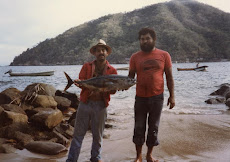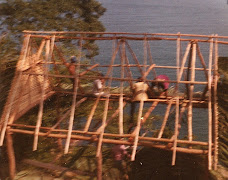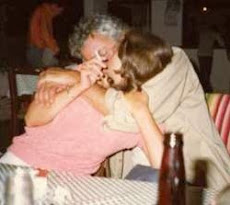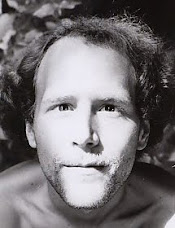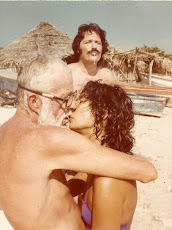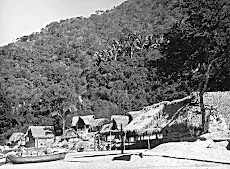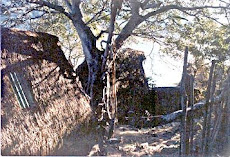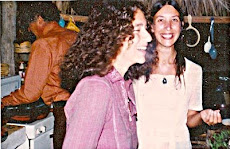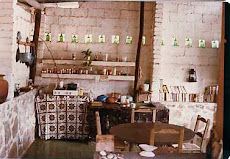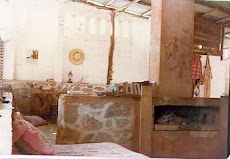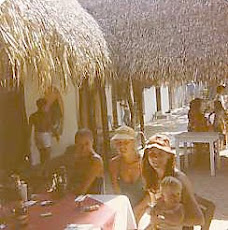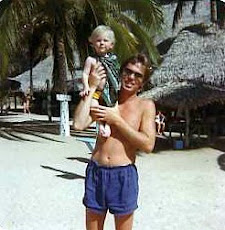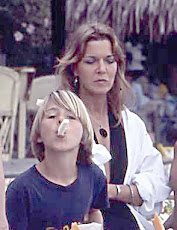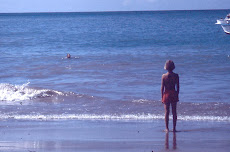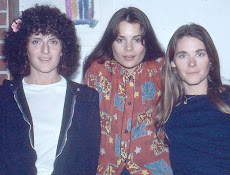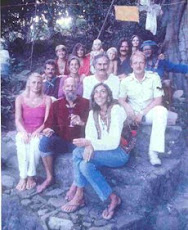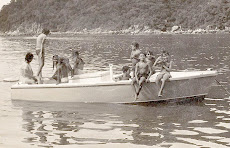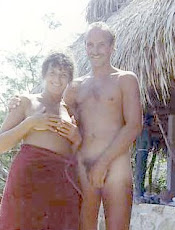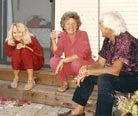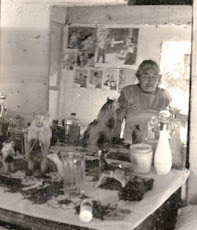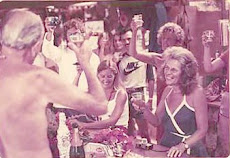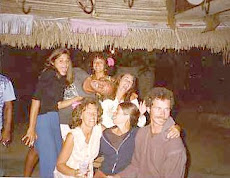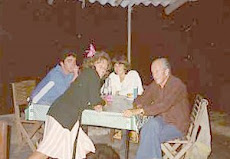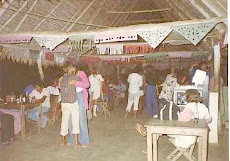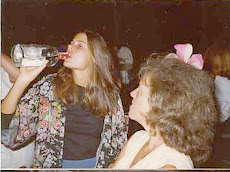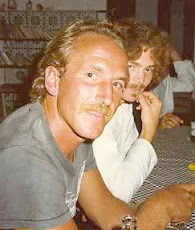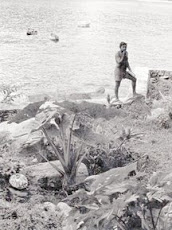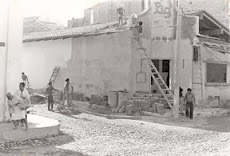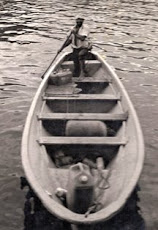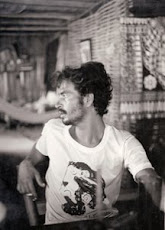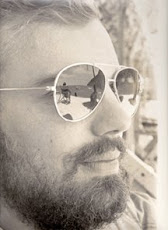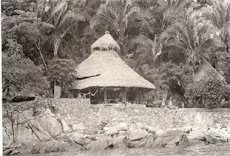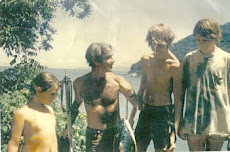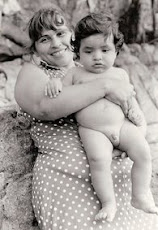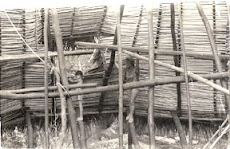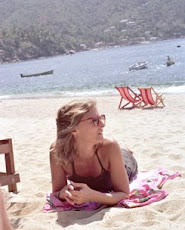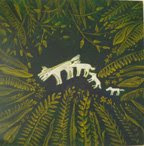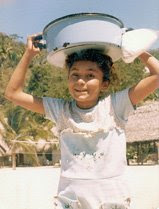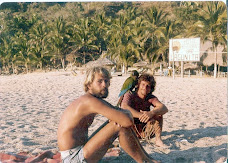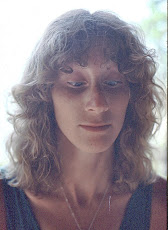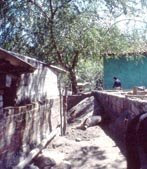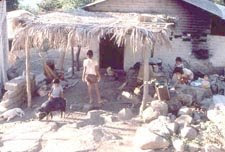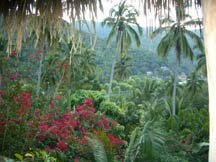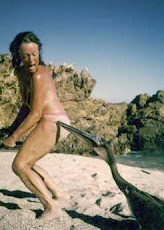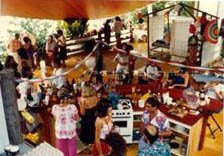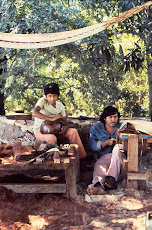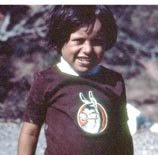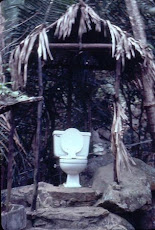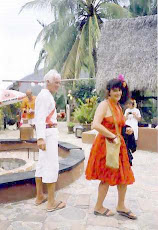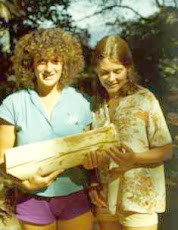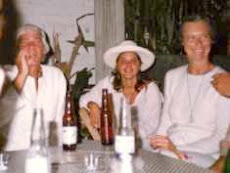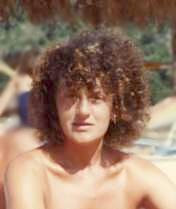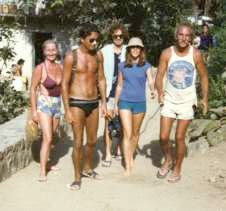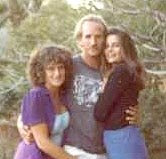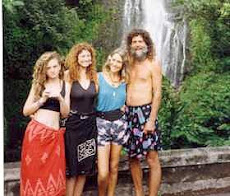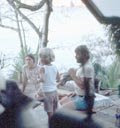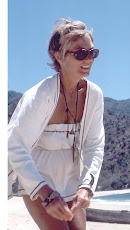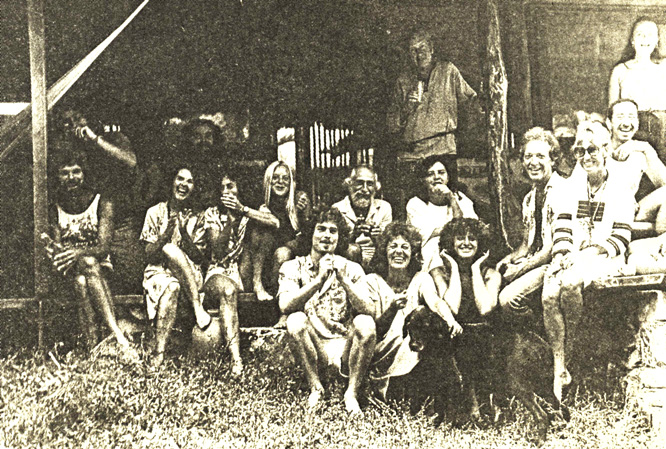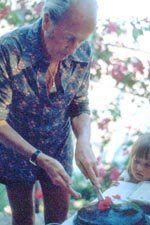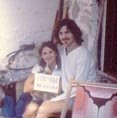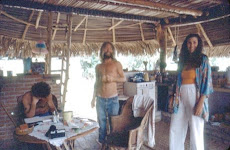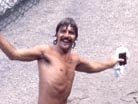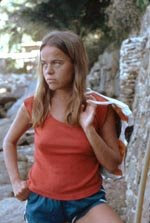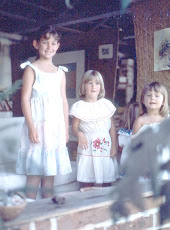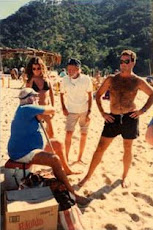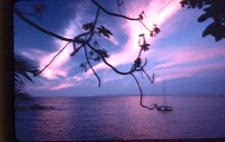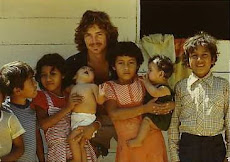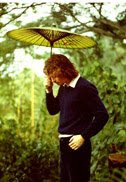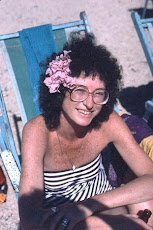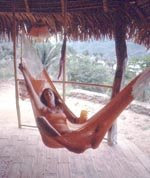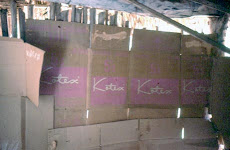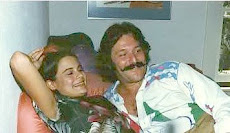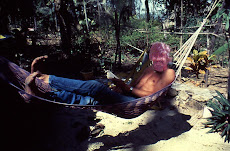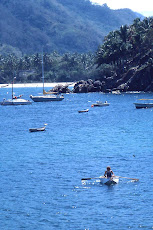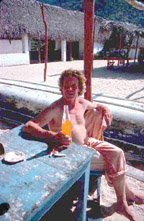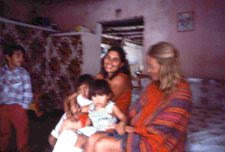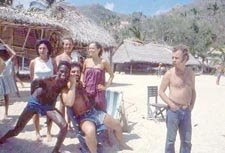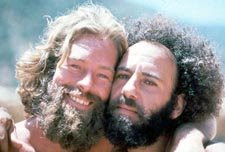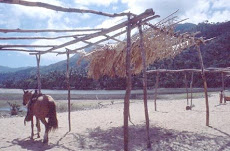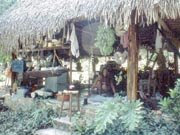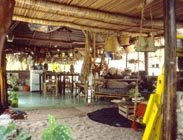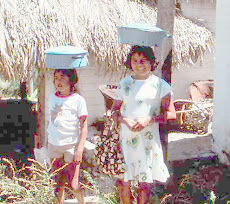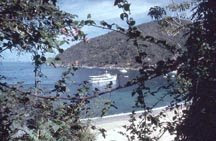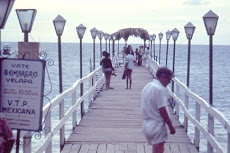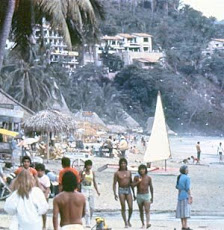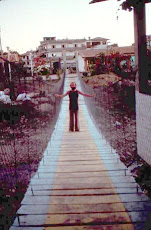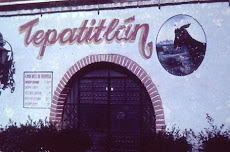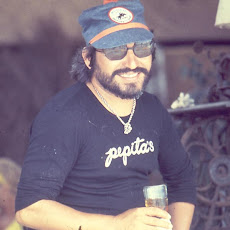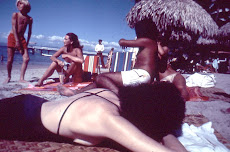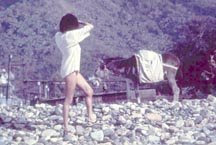Today is a laundry day and of course ironing as well as the part of work that I’ve brought home that still needs to be finished.
As I’m changing laundry from washer to dryer I have bits of memory that take me so far away – Yelapa way.
Yelapa things:
Toilet – early toilets were a Nido can with a plastic bag in it – beside it was sand, ash and dirt. A scoop of each for #2 was the habit.
There was another can if you were going to do #1 – it was thrown over the edge. (If you’re wondering of toilet paper, you picked your green leaves before you did your business – no Charmin here – if #1 you drip dry) I have no idea what women with their periods did – Honestly – I’m thinking they were at the waterfall all 5 days – I would have not survived.
It was perfectly normal to see someone peeing on the side of the road – mostly men. Women would be found only if a bush was moving along the side of the road.
Laundry – you’d take a bundle up river and set yourself up near rocks – one good flat one and a stick of soap – yes a stick, long like a stick of butter.
Wet clothes, rub with stick of soap and rub clothes against stone then rinse – twist to remove water and throw over a clean rock
One could only do this in the AM so that in the afternoon one could swing by and pick up the dry clothes.
Or you could have the help take care of it all for you. ( I liked how Basi did our clothes) These were great locations to find out what was going on in town.
Table and chairs – my father had taken a square piece of wood – put two hinges on one side of it and attached it to the two posts that held up the house – a stick that sat in the corner was used to hold it up when it was in use – the rest of the time it remained put away – flat down against the wall. Chairs were Nido cans, the large ones – sometimes with a pillow on them but mostly not.
Fruit and Veggies – You’d only get what you’d eat today or tomorrow – everything was ripe and ready to eat. Bananas were bought in raisimos which were how they grew. You’d have to wrap a gunny sack around it at night so that fruit bats would not get to them. I do not remember ever buying; coconuts, guayavas, guanavanos, mangos, coyules or many others that were in the local trees – you’d climb the tree and get them. Cuastecomates would fall from trees and break open with the black insides – they smelled so nice. My father had the people who lived near the tree make a drink with it that had chocolate and raicilla in it – very good stuff.
Milk – you could get it fresh from town but most just got Nido milk – powdered milk that was not bad if it’s what you grew up on – cow’s milk would be fresh and if boiled would create a thin layer on top that was good with frijoles.
Gas to cook on – Well, back in the day you’d order it from PV, the panga would bring it in and you’d have to have someone bring the large long tank to your house and hook it up. Our first one was interesting because we had to rearrange the kitchen a bit to attach the tank. We used to gather wood to cook until they started bringing the tanks into town.
Refrigerator – There were not any for a long time – we got the first one that was gas – I have no idea how my father found it but it arrived and we had one – small like a crate. It was hooked to the gas tank that the stove was hooked to and it worked great. Basi, our help, loved it.
Drinking water - when we first arrived there was a water hole, up near the waterfall. That one once got contaminated and made everyone sick – they moved it somewhere else. You’d have to go with your bucket and gourd. You’d carry it back to your house on your head. The first couple times my brother and I went we came home with 1/2 buckets each. We learned quickly how to do it properly. My father would boil it and put some stuff in it – cant remember what, and we’d put it in a cantaro with a drinking cup on top of it. The water tasted so fresh and cool.
Showers/baths – You took care of washing up at the river or the waterfall – the river that comes through town from the waterfall was good too – it used to be the in town clothes washing spot back in the day before they put the bridge in. (we’d used to have to walk over the rocks and when the river was high and it could not be crossed, we’d move goods from one end of town to the other through a rope attached to a house on each end of the river. Baskets of goods would be transferred back and forth.
After we got tanks that would get filled with water through pipes that came from above the waterfall, we’d all have bathrooms built that could have real toilets, septic tanks were built and my father had a bucket that had a handle that you’d pull and it would rain on you – that was a fun shower. Mostly there was a large tin container billed with water with a gourd in it and the maid, Basi, would wash us with cold water – it was not cold like Oregon cold, it was Yelapa cold. (not cold at all)
There were no baths. OK, maybe Rita had a bath. Everyone else had showers.
Fresh meat – well, once a month there was a man who owned cattle and he’d kill a cow and sell the meat – we’d all go watch the event, early in the AM. Chickens were easy, you’d just talk to anyone who sold eggs and ask when they’d have chicken to sell. Pork was the same way – anyone that sold chicharron would have pork – we did not eat that so much. Our main meals were of fish and chicken. Mostly beans, veggies, fish and bread. Back in the day, there were only three stores in town – one cantina in town and the boat club in town. A couple of restaurants – the cantina and Steve and his wife’s – that is in town – on the beach were all the restaurants but most of the town if you were going to go eat, it would be in town and not at the beach. If you ate at the beach it was after the tourist left because you’d eat with all the cooks and cooking staff – that was the best of all.
Clothes – well, it’s strange you think that someone would come to town with a very large bundle that they’d open up and you’d buy your clothes from them - or you’d go to PV and the main mercado for stuff. I liked the “Tambache man” he had everything including bras and under wear.



